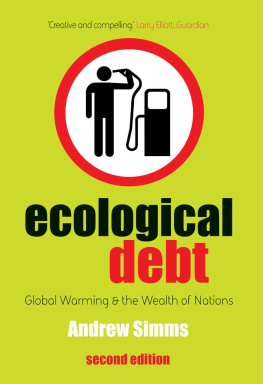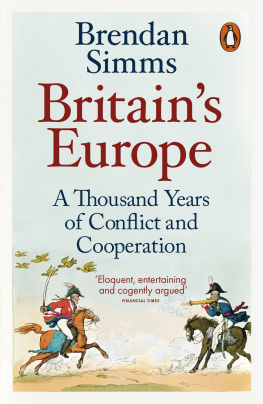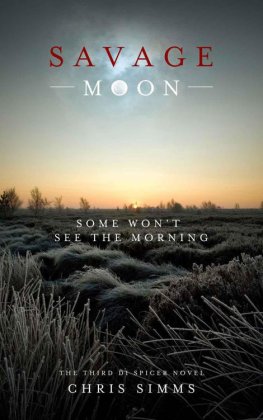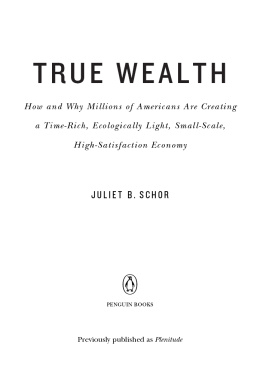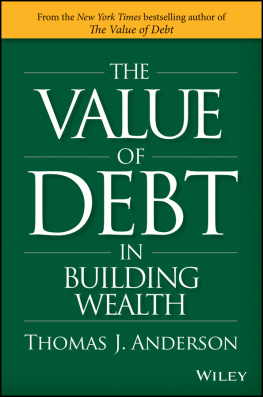Simms - Ecological debt: the health of the planet and the wealth of nations
Here you can read online Simms - Ecological debt: the health of the planet and the wealth of nations full text of the book (entire story) in english for free. Download pdf and epub, get meaning, cover and reviews about this ebook. City: London, year: 2009, publisher: Pluto Press, genre: Romance novel. Description of the work, (preface) as well as reviews are available. Best literature library LitArk.com created for fans of good reading and offers a wide selection of genres:
Romance novel
Science fiction
Adventure
Detective
Science
History
Home and family
Prose
Art
Politics
Computer
Non-fiction
Religion
Business
Children
Humor
Choose a favorite category and find really read worthwhile books. Enjoy immersion in the world of imagination, feel the emotions of the characters or learn something new for yourself, make an fascinating discovery.
- Book:Ecological debt: the health of the planet and the wealth of nations
- Author:
- Publisher:Pluto Press
- Genre:
- Year:2009
- City:London
- Rating:5 / 5
- Favourites:Add to favourites
- Your mark:
- 100
- 1
- 2
- 3
- 4
- 5
Ecological debt: the health of the planet and the wealth of nations: summary, description and annotation
We offer to read an annotation, description, summary or preface (depends on what the author of the book "Ecological debt: the health of the planet and the wealth of nations" wrote himself). If you haven't found the necessary information about the book — write in the comments, we will try to find it.
Ecological debt: the health of the planet and the wealth of nations — read online for free the complete book (whole text) full work
Below is the text of the book, divided by pages. System saving the place of the last page read, allows you to conveniently read the book "Ecological debt: the health of the planet and the wealth of nations" online for free, without having to search again every time where you left off. Put a bookmark, and you can go to the page where you finished reading at any time.
Font size:
Interval:
Bookmark:
Ecological Debt
PRAISE FOR THE FIRST EDITION
For conventional economists the environment is often an afterthought. They even describe the uncounted cost of pollution as an abstract externality. Ecological Debt diagnoses this potentially suicidal oversight, and comes up with a creative and compelling plan of action.
Larry Elliott, Economics Editor, Guardian
Never has the idea of living beyond your means seemed so terrifying and potentially disastrous. As a business woman I know the importance of reading balance sheets. This book shows that were in-the-red like we never knew. Forget your bank balance, now were all going to be talking about our ecological debt. A new phrase has entered the language.
Dame Anita Roddick, founder of The Body Shop
This book describes the world as it really is. Not as the advertisers or growth-obsessed politicians and economists would have us believe. A world where the most massive debts of all are owed by the rich to the poor, a world in which luxurious western lifestyles directly undermine the prospects for a fairer global society. Simms sets out a compelling argument as to why the stakes are now so high, and why the question of ecological debt must move to centre stage in global politics. Read it, find out who really owes what to whom.
Tony Juniper, Executive Director, Friends of the Earth
This book should be essential reading, particularly for those in positions of responsibility. It brings out in very simple but powerful words the reason why ecological debt is far more important than national debt for a country. The book highlights the paradox of the world having reached unprecedented prosperity in monetary terms but an alarming rate of impoverishment in ecological terms. This trend needs major global efforts to address this malaise.
R. K. Pachauri, PhD, Director-General, TERI, Chairman of the Intergovernmental Panel on Climate Change

First published 2005.
This edition published 2009 by Pluto Press
345 Archway Road, London N6 5AA and
175 Fifth Avenue, New York, NY 10010
www.plutobooks.com
Distributed in the United States of America exclusively by
Palgrave Macmillan, a division of St. Martins Press LLC,
175 Fifth Avenue, New York, NY 10010
Copyright Andrew Simms 2005, 2009
The right of Andrew Simms to be identified as the author of this work has been asserted by him in accordance with the Copyright, Designs and Patents Act 1988.
British Library Cataloguing in Publication Data
A catalogue record for this book is available from the British Library
ISBN 978 0 7453 2728 0 Hardback
ISBN 978 0 7453 2727 3 Paperback
ISBN 978 1 7837 1059 1 ePub
Library of Congress Cataloging in Publication Data applied for
This book is printed on paper suitable for recycling and made from fully managed and sustained forest sources. Logging, pulping and manufacturing processes are expected to conform to the environmental standards of the country of origin. The paper may contain up to 70 per cent post-consumer waste.
10 9 8 7 6 5 4 3 2 1
Designed and produced for Pluto Press by
Chase Publishing Services Ltd, Sidmouth, England
Typeset from disk by Stanford DTP Services, Northampton, England
Printed and bound in the European Union by
Antony Rowe Ltd, Chippenham and Eastbourne
Acknowledgements
To all the people, in no particular order, who were interested, helpful or encouraging, even if they were unaware of being so at the time including but not limited to: June Simms, David Simms, David Boyle, Rachel Maybank, Simon Retallack, Andy Strauss, Nick Robins, Jenny Scholfield, Caroline Lucas, Jonathan Walter, Molly Conisbee, Ann Pettifor, Romilly Greenhill, Marion Genevray, Etienne Pataut, Peroline Bousquet, Renwick Rose, Ruth Potts, Hetan Shah, Pat Bailey, Matt Rendell, Angela Burton, John Harriss, Alex Macgillivray, Petra Kjell, Jessica Bridges Palmer, Julian Oram, Alex Evans, Aubrey Meyer, Angela Wood, James Marriott, Wolf Hassdorf, Andrew Dobson, John Broad, Ralph Russell, John Magrath, Ed Mayo, Saleemul Huq, Hannah Reid, Judith Dean, David Woodward, Jane Shepherd, Victoria Johnson, Corrina Cordon, Peter Myers, Benedict Southworth, Stewart Wallis, Kevin Anderson, Joe Smith, Pat Conarty, Sarah Butler Sloss, Liz Cox, Fred Pearce, Sue Mayer, Ros Coward, Martyn Day, Charlie Kronick, Rob Hopkins, Satish Kumar, John Sauven, David Castle, Caroline Stewart, Colin Hines, Robin Maynard, Tim Lang, Bevis Gillett, David Adshead, Andy Fryers, Rosie Boycott, Felicity Lawrence and Ethan and Joe Stein. Some specific thank yous are also in the endnotes.
All photographs have been supplied by the author, unless credited otherwise.
To Scarlett Iona Snow,
on behalf of my generation I apologise,
we didnt do enough.
And to Rachel Maybank, thank you for Scarlett.
Preface to the Second Edition
I discovered a flaw in the model that I perceived is the critical functioning structure that defines how the world works.
Alan Greenspan, former chairman, US Federal Reserve, October 2008
Owing to past neglect, in the face of the plainest warnings, we have now entered upon a period of danger The era of procrastination, of half measures, of soothing and baffling expedients, of delays, is coming to its close. In its place, we are entering a period of consequences.
Winston Churchill, 12 November 1936
Oil is the trouble, of course. Detestable stuff!
Gertrude Bell, Baghdad, 1921
RETURNING
The elephant is still standing. And still dead. Around its feet glisten hundreds of coins thrown by visitors. They might be wishes asked of the soul of the departed animal. Or, small gestures of recompense in lieu of its fate and the fate of the land that was once its home. Three years since I last visited the Museum of Central Africa in the Belgian city of Brussels, little else has changed. Room after room is full of animals stuffed and perched rigidly against crudely realised backdrops of African forest and grassland.
Had they been painted by your three-year-old daughter, you would brim with pride. As the work of a major museum, they look comic and sad. The joke, too, is a bad one. Passing through to another long room that surveys Africas global economic contribution, maps on the wall dissect and label each country, tagging them like the worn, stuffed big cats and apes, and fish pickled in jars.
This is Africa as the memory and promise of wild, exhilarating and dangerous nature. Life waiting to be hunted, captured, tamed or killed. Two crocodiles in a glass case encircle each other in freeze-frame, flexing long tails and grins that seem to keep widening. This is Africa seen as a cornucopia of natural wealth to be mined, harvested, picked, squeezed and taken. The wall maps speckled with graphs reduce the continent in general, and the Congo in particular, to a series of carefully plotted locations for the extraction of oil, cotton, coffee, sugar, rice, maize, jute, palm oil, diamonds, cobalt, tin, copper and gold. One term for it is the resource curse.
A partial defence by the museum could be that this is real history it represents precisely how Europe has viewed and treated Africa for more than a century. But the defence fails because there is too little to rescue it from the charge that seen like this, it merely lays the psychological foundations for the future to repeat the mistakes of the past. Somehow, the reality of civilisations wrecked and of peoples brutalised and killed to support Europes rising economies becomes dissipated.
Next pageFont size:
Interval:
Bookmark:
Similar books «Ecological debt: the health of the planet and the wealth of nations»
Look at similar books to Ecological debt: the health of the planet and the wealth of nations. We have selected literature similar in name and meaning in the hope of providing readers with more options to find new, interesting, not yet read works.
Discussion, reviews of the book Ecological debt: the health of the planet and the wealth of nations and just readers' own opinions. Leave your comments, write what you think about the work, its meaning or the main characters. Specify what exactly you liked and what you didn't like, and why you think so.

